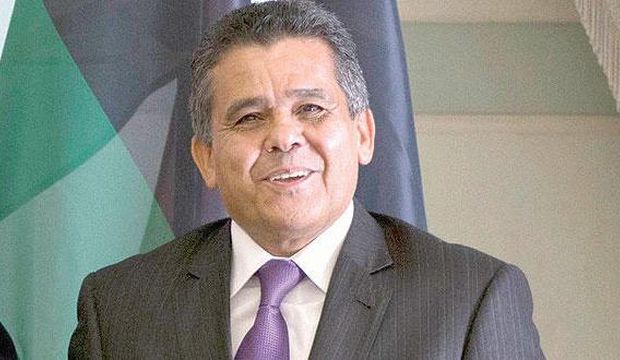
Libyan Foreign Minister Mohamed Al-Dairi. (Asharq Al-Awsat)
Riyadh, Asharq Al-Awsat—The United States is refusing to “cooperate” with the Libyan government’s counter-terror efforts unless a national unity government is formed, Libyan Foreign Minister Mohamed Al-Dairi said.
In comments to Asharq Al-Awsat during a state visit to Riyadh, Libya’s foreign minister discussed the latest developments in the North African state that remains split between two rival governments amid an increasing Islamic State of Iraq and Syria (ISIS) presence in the country.
“Libya’s interim [internationally recognized] government remains present . . . But is incapable of controlling all Libyan territory and so there are some extremist groups like ISIS that are outside of the control of the state. They are not just a threat to Libya, but also to Egypt and Tunisia,” Dairi said.
Despite the escalating security threat, Washington is linking any counter-terror assistance to talks to resolve the ongoing political dispute in the North African state. There are numerous efforts to resolve the political crisis in Libya, with UN Envoy Bernardino Leon mediating one set of talks, while dialogue is also taking place between rival Libyan factions in Qatar and the United Arab Emirates (UAE).
Libya’s interim parliament, based out of Tobruk and led by Prime Minister Abdullah Al-Thani, was formed from the elected General People’s Congress that was forced to flee the capital Tripoli after Islamist forces—dubbed Libyan Dawn—took over the capital and set up a rival parliament and government.
“Libyan Dawn, which was launched last year, represented a major challenge to Libyan national unity while even prior to this, the transition period between 2012 and 2014 was very difficult and saw many threats to Libyan stability. However what happened following July 2014 represented a major crack in Libya’s political and social cohesion,” the Libyan FM said.
As for the escalating threat of terrorism in the country, Dairi said: “This is of concern not just to our regional neighbors but the international community as a whole.”
Libyan Prime Minister Abdullah Al-Thani survived an apparent assassination attempt on Tuesday after unidentified gunmen fired at his convoy after he left the parliament building in the eastern city of Tobruk. Armed men had earlier tried to storm Libya’s legitimate parliament but been pushed back by government forces.
The security situation in the country has continued to deteriorate over the past year, with the international community warning of dire humanitarian conditions in the Islamist-held city of Benghazi.
Dairi praised Riyadh’s support for Libya’s legitimate authorities in a meeting with Saudi Foreign Minister Adel Al-Jubeir. He thanked Saudi Arabia for its continued support for the Libyan people, including its ongoing monitoring of Qatari-and UAE-mediated meetings between rival Libyan political factions.
